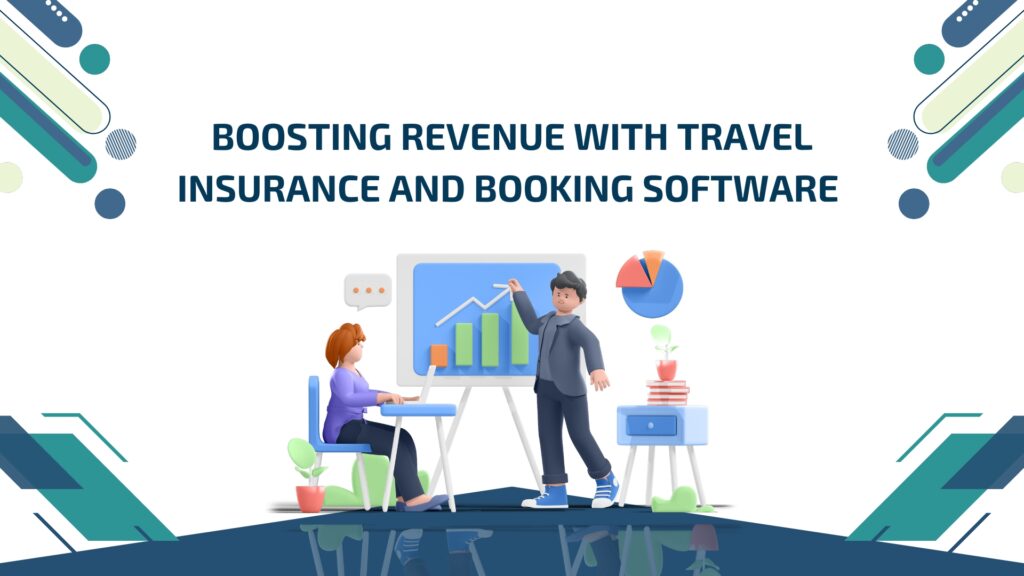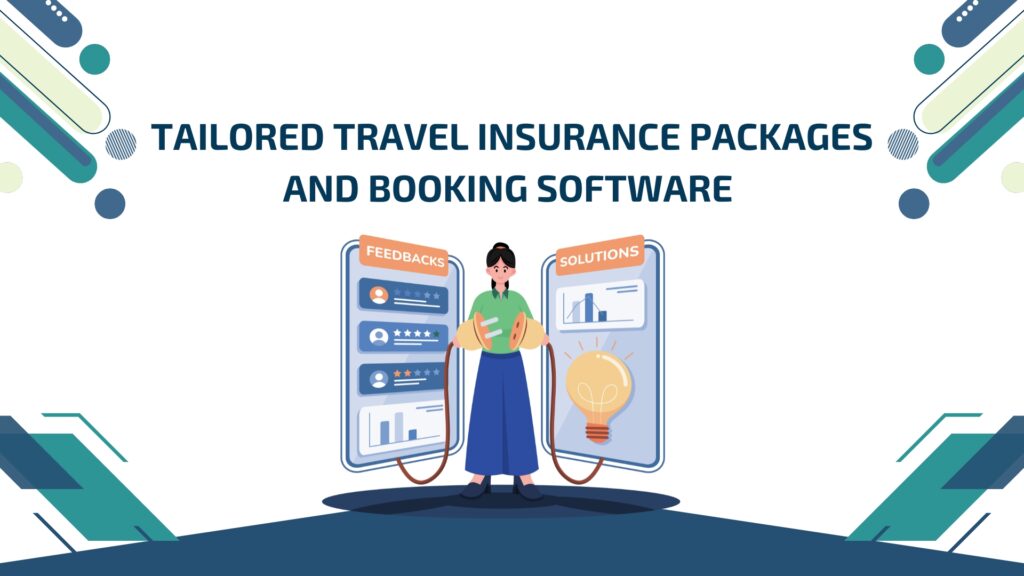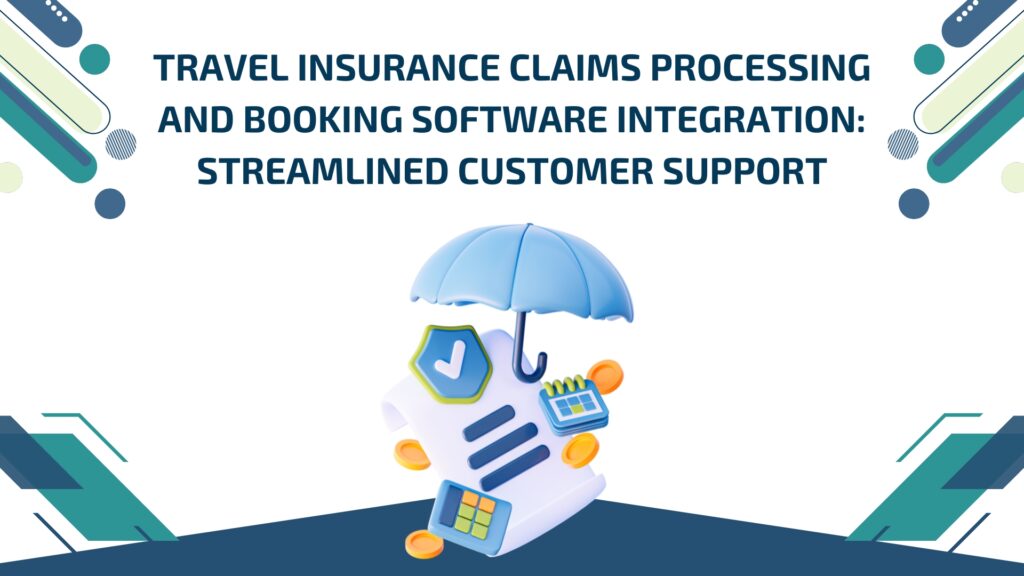The Psychology Behind Bundling Travel Insurance and Bookings: Increasing Sales Conversions
Bundling travel insurance with booking software is a powerful way to increase revenue while enhancing customer value. By understanding consumer behavior and implementing effective strategies, you can drive sales and improve profit margins.

Crafting Effective Travel Insurance and Booking Software Bundles: Maximizing Customer Value
When customers book a trip, they are already in a purchasing mindset. Bundling insurance with their booking taps into this decision-making process. Travelers feel more secure when they can protect their investment with insurance at the point of purchase. By positioning insurance as an integral part of the booking, customers see it as essential rather than optional. This seamless integration reduces friction and increases the likelihood of customers opting in.
Effective Bundling Strategies: Creating Compelling Offers and Promotions
Creating enticing offers is crucial for successful bundling. Discounts, exclusive promotions, and limited-time offers can motivate customers to choose insurance as part of their booking package. For instance, offering a small discount on the total cost if insurance is included can create a win-win scenario. Additionally, clear communication about the benefits of insurance—such as peace of mind, financial protection, and travel assistance—helps in conveying the value proposition to travelers.
Maximizing insurance profit margins without compromising customer satisfaction
To ensure profitability, it’s important to balance competitive pricing with maximizing margins. Offering tiered insurance plans, where customers can select coverage levels based on their needs and budget, provides flexibility while enhancing revenue. Upselling options like extended coverage or add-ons (e.g., cancellation protection) can further improve margins. However, transparency is key—clearly detailing what each plan offers ensures customers feel confident in their purchase and remain satisfied.
Measuring the ROI of insurance bundling: Key metrics and analysis.
Tracking the success of insurance bundling requires careful measurement of key performance indicators (KPIs). Metrics such as attachment rates (the percentage of bookings with insurance), average revenue per booking, and customer retention rates offer insights into the effectiveness of your strategy. Regular analysis allows for data-driven adjustments, ensuring that bundling efforts remain profitable while delivering value to customers.
Conclusion
In conclusion, bundling travel insurance with booking software offers a unique opportunity to boost revenue and enhance customer satisfaction. By leveraging consumer psychology, crafting strategic offers, and monitoring performance, you can create a sustainable growth strategy for your busin

Tailored Travel Insurance Packages and Booking Software: Meeting Customer Needs
Offering tailored insurance packages is key to meeting diverse customer requirements. By understanding specific needs, creating customizable options, and using data-driven insights, travel businesses can deliver value while optimizing their offerings.
Understanding customer insurance needs: Identifying specific requirements based on demographics, trip type, and destination.
Customers have different insurance needs based on who they are, where they’re going, and the nature of their trip. A business traveler has different concerns than a family on vacation. Understanding these variations allows you to create packages that resonate. Demographics such as age, income level, and trip frequency play a role in determining the types of coverage that appeal to different groups. Similarly, the destination can impact the kind of insurance a customer may prioritize—some regions may require specific medical coverage or protection against travel disruptions.
Creating Customizable Travel Insurance Packages with Travel Agency Software: Building a Flexible Platform
Flexibility is crucial in today’s market. Offering customizable insurance packages enables customers to pick and choose the coverage that fits their specific situation. A dynamic platform that allows travelers to add, remove, or adjust coverage options not only increases customer satisfaction but also encourages upselling. For example, offering base packages with optional add-ons for adventure sports or higher medical coverage provides tailored protection without overwhelming customers with unnecessary features.
Using Data Analytics to Refine Travel Insurance and Booking Software Offerings: Identifying Trends
Data analytics is a powerful tool for refining insurance packages. By analyzing purchasing patterns, customer feedback, and claims data, businesses can identify trends that inform more targeted offerings. For instance, if data reveals a growing interest in trip cancellation protection, you can develop packages that emphasize this feature. Predictive analytics can also help anticipate customer needs based on past behavior, leading to more personalized offers that drive sales.
Effectively Communicating Travel Insurance Benefits Through Travel Management Software: Clear and Concise Information
The way you present insurance options plays a big role in whether customers decide to purchase them. Clear, concise, and transparent communication is essential. Customers should easily understand what each package offers and how it benefits them. Use straightforward language, avoid jargon, and highlight key benefits that address common concerns like unexpected cancellations, medical emergencies, and lost luggage. Simplifying the decision-making process by focusing on the most relevant features increases the likelihood of customers selecting the right insurance package for their needs.
Conclusion
In conclusion, tailored insurance packages are a winning strategy for travel businesses looking to enhance customer satisfaction and boost revenue. By understanding your audience, offering flexibility, leveraging data insights, and communicating effectively, you can create insurance solutions that meet diverse needs while optimizing profitability.

Travel Insurance Claims Processing and Tour Booking Software Integration: Streamlined Customer Support
A seamless travel insurance claims process is paramount for customer satisfaction. Integrating insurance claims with booking software simplifies this process, enhancing efficiency and accuracy. By leveraging technology and automation, businesses can reduce manual workload and measure performance effectively.
The Importance of a Seamless Travel Insurance Claims Process with Booking Software: Enhancing Customer Satisfaction
When unexpected events disrupt travel plans, a swift and hassle-free claims process becomes crucial. Integrating travel insurance claims with booking software creates a unified platform for customers, simplifying the process and reducing frustration. By providing easy access to claim information and status updates, businesses can significantly improve customer satisfaction. A positive claims experience reinforces trust and loyalty, encouraging repeat business.
Using Travel agency booking system to automate claims processing: Reducing manual workload.
Integrating travel insurance claims with booking software streamlines data transfer and reduces manual data entry errors. Relevant customer and policy information is readily available, accelerating claim processing times. Additionally, integration enables automated verification of policy details and eligibility, minimizing delays caused by manual checks. This streamlined approach enhances efficiency throughout the claims process, from initial submission to final resolution.
Automating Travel Insurance Claims Processing with Booking Software: Reducing Manual Workload
Automation is key to optimizing claims processing efficiency. By automating routine tasks such as data entry, document verification, and initial claim assessments, businesses can free up staff to focus on complex claims and customer interactions. Intelligent automation technologies can analyze claim information, identify potential issues, and initiate appropriate actions, reducing processing times and minimizing errors. This not only improves operational efficiency but also enhances overall customer experience.
Measuring Travel Insurance Claims Processing Efficiency with Booking Software: Key Performance Indicators
o evaluate the effectiveness of travel insurance claims processing, key performance indicators (KPIs) are essential. Metrics such as average claim processing time, first-contact resolution rates, customer satisfaction scores, and error rates provide valuable insights. By tracking these metrics, businesses can identify areas for improvement, optimize processes, and measure the impact of integration on overall performance. Regular analysis of these KPIs ensures continuous enhancement of the claims process.
Conclusion
In conclusion, integrating travel insurance claims with booking software offers numerous benefits, including improved customer satisfaction, increased efficiency, and reduced manual workload. By leveraging automation and measuring performance, businesses can create a streamlined claims process that fosters customer loyalty and protects their brand reputation.